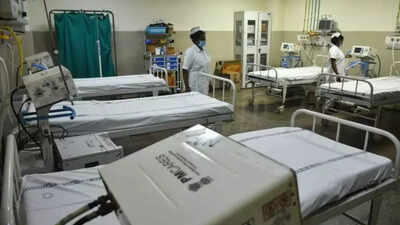PUNE: Covid-19 viral presence has been detected across all 10 sewage treatment plants in the city since early May, with wastewater surveillance by CSIR-National Chemical Laboratory (NCL) revealing patterns that resemble the early build-up phases observed before previous surges. Dr Mahesh S. Dharne, scientist and microbiologist at NCL, told TOI that while the current rise “appears gradual”, the positivity levels in wastewater samples are tracking similarly to patterns seen in the weeks preceding earlier surges, providing valuable early insights into Covid transmission trends. “The first sample turned positive on April 22 from one of the STPs. From May 6 onwards, all STPs are showing positive results for SARS-CoV-2 via RT-PCR,” he said.Wastewater surveillance has emerged as a critical early warning system for tracking community spread of Covid-19, often detecting viral presence days or weeks before clinical cases are reported. The method involves monitoring sewage samples from treatment plants to identify genetic material of the SARS-CoV-2 shed by infected individuals, regardless of if they show symptoms or get tested. This surveillance technique provides public health officials with real-time insights into infection trends across entire communities, making it particularly valuable for tracking asymptomatic cases and emerging variants. Unlike clinical testing, which depends on individual behaviour and healthcare access, wastewater monitoring captures the collective viral load of entire populations served by specific sewage systems.NCL remains the sole institute conducting systematic wastewater surveillance in Pune monitoring all 10 STPs across the city. The laboratory has been successfully tracking previous surges caused by Omicron and its sub-lineages. Dr Dharne said the current findings emerged from a retrospective analysis triggered by reports of Covid-19 resurgence in Singapore and other countries. “We were collecting samples and storing them. But when we saw news from Singapore, we decided to analyse what the scenario was in Pune,” he said. Weekly testing of samples from the 10 sewage treatment plants shows approximately 40 of the 60 samples returning positive results. The first positive sample was detected on April 22 from a single STP, with all treatment plants showing positive results from May 6.“The positive samples from April 22 onwards confirmed the virus’s presence, though heavy rainfall last month may have diluted the viral load, making it challenging to assess the true extent of the rise. The rain likely affected our samples. But with clearer weather now, this week’s data, expected by Friday or Saturday, will provide a clearer picture,” he added.Unlike clinical testing, identifying specific variants in wastewater is complex. Dr Dharne said: “RT-PCR helps us detect viral presence and estimate load, but pinpointing the exact variant is difficult.” The current findings show a pattern worth noting. “What we are observing now is that the viral load patterns are similar to those threshold levels we have seen before surges picked up momentum. This gives us a better opportunity to track trends as they develop,” Dr Dharne said, emphasising the value of early detection through wastewater monitoring.NCL has been informing the sewage surveillance trends to health and IDSP officials, Maharashtra state Covid task force, and National Centre for Disease Control, New Dehi, on a weekly basis for required preparedness.The sewage surveillance work has been supported by Rockefeller Foundation, USA, under the Four City Surveillance Programme initiated in Aug 2021 in Pune, Hyderabad, Bengaluru and Sonepat. The partners include CSIR-Centre for Cellular and Molecular Biology (CCMB), Tata Institute for Genetics and Society’s National Centre for Biological Sciences (TIGS-NCBS), Bengaluru, Ashoka University, Sonipat, and CSIR-NCL, Pune. The programme is mentored by Dr Rakesh Mishra, director, TIGS; Dr LS Shashidhara, NCBS; Dr Vinay Nandikoori CCMB. In Pune, the partner organisation is Pune Knowledge Cluster.






